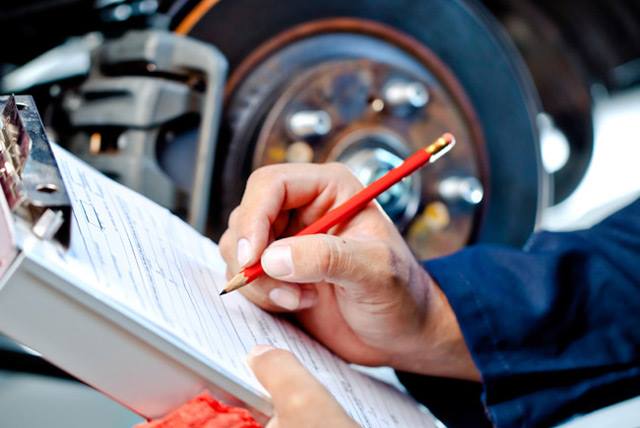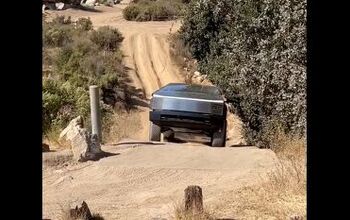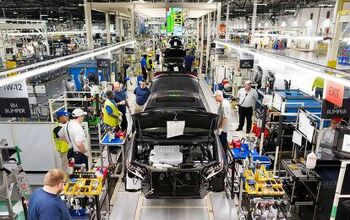Texas May Be the Next State to Eliminate Annual Vehicle Inspections

The Lone Star State may be doing away with annual state vehicle inspections soon. On Thursday, a 27-4 vote in the Texas Senate approved a bill that would eliminate mandatory inspections for passenger vehicles. Although Senate Bill 1588 doesn’t change anything for commercial trucks, they’ll still be required to undergo a yearly safety inspection, and automobiles residing in seventeen counties will also have to pass emission tests for local air-quality laws.
For the rest of the state, it would be open season. “This is a tax cut that Texans will feel,” claimed Senator Don Huffines, a Dallas-based Republican who approved the bill. “It will save Texans $130 million they’re now having to pay for a procedure that has proven to have no discernible safety benefit to drivers.”
The change follows a trend in the United States to rollback yearly inspections. While most states still require some sort of periodic emissions testing, just over a dozen mandate scheduled safety assessments. Mississippi passed a similar bill in 2015 and New Jersey abolished it’s safety inspections in 2010. Like Texas, the majority of supporters agreed that it was not in their state’s financial interests now that automobiles were becoming safer and more reliable.
According to the Houston Chronicle there were, however, a handful of senators that were not in agreement. “If this bill passes, I’m going to have trouble sleeping knowing that there will be thousands of dangerous vehicles on the road,” Democratic Senator Eddie Lucio said during the lengthy debate preceding the vote.
Senator Sylvia Garcia, D-Houston, also opposed the bill. “What happens if people can’t maintain their cars at the level they should?” she asked. “I don’t think that’s good for everyday Texans … because you’re setting this up where even more people can get tickets.”
Fines for not having an inspection sticker displayed, or having one out of date, range between $100 and $150 in the state of Texas. If the House approves the bill, annual savings to drivers should average roughly seven dollars.
Even though Texas imposed its own statewide policy in 1951, the Department of Transportation created a national vehicle inspection program after Congress passed the Highway Safety Act in 1966. When Congress began permitting states to abandon their inspection programs in 1976, many did. The majority that have done so in the last decade have cited single digit savings to drivers and minor losses in revenue. Although, you can’t really place an all-inclusive price on the time and energy it takes to get a vehicle certified.
As for concerns over public safety, Huffines said they were unfounded. “I look at this as an unnecessary procedure that should be eliminated,” said Huffines, adding that the repealing of inspection programs in other states haven’t seen any problems.

A staunch consumer advocate tracking industry trends and regulation. Before joining TTAC, Matt spent a decade working for marketing and research firms based in NYC. Clients included several of the world’s largest automakers, global tire brands, and aftermarket part suppliers. Dissatisfied with the corporate world and resentful of having to wear suits everyday, he pivoted to writing about cars. Since then, that man has become an ardent supporter of the right-to-repair movement, been interviewed on the auto industry by national radio broadcasts, driven more rental cars than anyone ever should, participated in amateur rallying events, and received the requisite minimum training as sanctioned by the SCCA. Handy with a wrench, Matt grew up surrounded by Detroit auto workers and managed to get a pizza delivery job before he was legally eligible. He later found himself driving box trucks through Manhattan, guaranteeing future sympathy for actual truckers. He continues to conduct research pertaining to the automotive sector as an independent contractor and has since moved back to his native Michigan, closer to where the cars are born. A contrarian, Matt claims to prefer understeer — stating that front and all-wheel drive vehicles cater best to his driving style.
More by Matt Posky
Latest Car Reviews
Read moreLatest Product Reviews
Read moreRecent Comments
- ToolGuy This thing here is interesting.For example, I can select "Historical" and "EV stock" and "Cars" and "USA" and see how many BEVs and PHEVs were on U.S. roads from 2010 to 2023."EV stock share" is also interesting. Or perhaps you prefer "EV sales share".If you are in the U.S., whatever you do, do not select "World" in the 'Region' dropdown. It might blow your small insular mind. 😉
- ToolGuy This podcast was pretty interesting. I listened to it this morning, and now I am commenting. Listened to the podcast, now commenting on the podcast. See how this works? LOL.
- VoGhost If you want this to succeed, enlarge the battery and make the vehicle in Spartanburg so you buyers get the $7,500 discount.
- Jeff Look at the the 65 and 66 Pontiacs some of the most beautiful and well made Pontiacs. 66 Olds Toronado and 67 Cadillac Eldorado were beautiful as well. Mercury had some really nice looking cars during the 60s as well. The 69 thru 72 Grand Prix were nice along with the first generation of Monte Carlo 70 thru 72. Midsize GM cars were nice as well.The 69s were still good but the cheapening started in 68. Even the 70s GMs were good but fit and finish took a dive especially the interiors with more plastics and more shared interiors.
- Proud2BUnion I typically recommend that no matter what make or model you purchase used, just assure that is HAS a prior salvage/rebuilt title. Best "Bang for your buck"!


































Comments
Join the conversation
Did Audi and VW lobby Texas or something? Can't catch defeat devices if there's no vehicle inspection...
As a Houstonian, the reality of it is if you don't know a shop that'll pass your car no questions asked then you ain't a real Texan! That the emissions requirement remains is what intriques me - the east side of Houston is damn dangerous with the constant chemical releases from the plants...that worries me more. But Texas is pro-business, so the little guy doesn't matter...